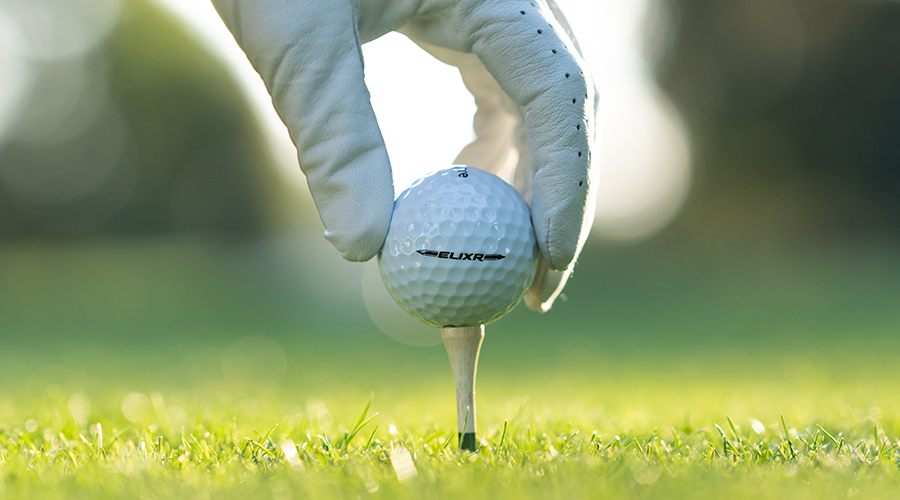This is a great question we recently received from a #TeamOnCore member. And the fact of the matter is pros and amateurs truly exist in two different worlds when it comes to golf ball replacement. Professional golfers voluntarily change out their balls several times over 18 holes, with PGA TOUR players often using three to six balls per round.
For your average amateur golfer, however, this sounds like a budgetary nightmare. Golf balls – or any golf gear for that matter – aren’t cheap. And we won’t even mention that the pros are being paid the big bucks to play a certain brand of golf ball while the rest of us come out of our own pockets to keep our golf bags stocked with the good stuff.

The good news? With today’s advanced golf ball construction, golfers can go several rounds without needing to change out their balls (provided they don’t lose them, of course). Ok, great! But just how long can we keep a ball in play without sacrificing performance benefits? We posed the question to our Senior Technical Advisor John Calabria and Head of Research and Development Mike Jordan. Here we go.
John Calabria
“Play your golf ball until you lose it if it doesn’t appear to act funny when hit. Urethane covers (such as those on the VERO X1, X2 and ELIXR) are extremely durable and can last a long time. Sure, there might be small scrapes and blemishes, but these generally don’t affect how the golf ball flies. If the ball gets thinned with a wedge shot it is possible to put a slight “smile” on the ball, but it shouldn’t be a problem.
My guideline: play a ball for 18 holes, check it regularly and keep it clean. If it looks fine, then put it back in your bag and use it as a second ball for your next round and start with a new ball. The other option: put the used ball in your shag bag and hit away. It’s almost impossible to make a solid ball go out of round like an old wound balata. However, if the ball hits something sharp like a jagged piece of rock or cement and it gets nicked then remove it from play.
The surface of a golf ball will dull the longer it’s in play from interacting with iron grooves, dirt and sand. It’s more likely to be seen if the ball is played for multiple rounds and it is the clear coat wearing slightly. If a player is good enough to have the same ball after two rounds, then retire it to the shag bag.
A final note: Modern golf balls have a long shelf life if they’re not exposed to temperature extremes. Retire your used golf balls to a shag bag or donate them to a local junior golf program rather than throwing them out. This will help the environment or allow others to learn the game we all love.”
Mike Jordan
“If you’ve sheared or removed a good bit of paint (a dime size or more) I’d pull the ball out of play. The paint is part of the aerodynamic system and when removed the affected area has deeper dimples that will perform differently than designed. Think about it like your car tires. As they wear, they lose general handling capabilities and especially performance in the water. You can keep driving on them but expect erratic performance in tough conditions.
With thermoplastic-covered golf balls, if you move or distort a couple of dimples, change out the ball. An individual dimple or two won’t impact the normal golfer, but why play a damaged ball? It won’t perform like it was designed to. Somewhat related, most of us have played with balls we’ve found on the course, especially when we’re running low. If the ball doesn’t have paint or dimple distortions and is still shiny it should perform. However, don’t play a faded ball or one with a discolored or partially missing logo. That’s a sure sign the ball has been in the elements way too long and will not perform well.”
Need help finding the right golf ball for your game? Check out our online fitting assessment and get $10 in OnCore Cash if you’re a first-time buyer.
The post Dear OnCore: How Often Should I Change My Golf Ball? appeared first on OnCore Golf | Innovative, Premium Golf Balls.
